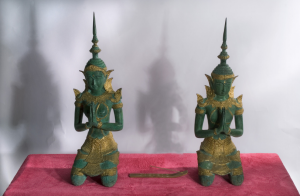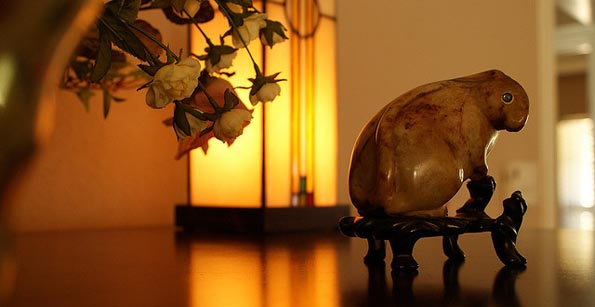Since Feng Shui deals with balance, it is not far off to discuss the matters about the Golden Ratio. The Golden ratio is one of the precepts that govern Feng Shui. This ratio is numerically described as 1.62. The Fibonacci numbers that we know today are also directly linked to the Golden Ratio. When you divide a certain term in a Fibonacci sequence with the number prior to it, you will find that it approaches the value of the Golden Ratio.
Beauty Equals Symmetry
The beauty of objects may be measured by its closeness to the golden ratio. The symmetry of objects is the attribute that tells if a thing is beautiful or not, for the most part. People naturally love balance of elements, and for the chi to flow, the Golden Ratio must apply.
The Golden Ratio in History
The Golden Ratio is manifested in various works of art that have been lauded by the world as masterpieces. The genius in Da Vinci lies in the symmetry of his works that reflect the Golden Ratio. The drawing of the Vitruvian Man is a classic example of man who had the ratio of 1.62 all over his body and was considered as a picture of perfection.
The Golden Ratio in Famous Places
Famous places such as the pyramids of Egypt also employ the Golden Ratio. The half of the bottom layer of the pyramids of Egypt is also a factor of 1.62.
The Golden Ratio in Plants
Even plants have distinct characteristics of Golden Ratio. They establish a Fibonacci sequence in the number of leaves. Even the eyes of a pineapple follow this golden ratio. Much of the things that are viewed as beautiful by the naked eye establish the factor that possesses the Golden Ratio in one way or another. The Fibonacci sequence can be more or less seen in the beauty of nature. Even human DNA has factors that are assimilative of the Golden Ratio.
The Golden Ratio to Facial Features
If the ratio of your nose to your chin to the horizontal space between your nose and one side of your cheek is more or less the same as the Golden Ratio, you will find that the face is judged as attractive. In some experimental studies done by scientists, where they showed pictures of women to infants, the ones which had an impact were the more symmetric faces.
Applying the Golden Ratio in Your Office Space
In your office space, it is quite easy to apply the Golden Ratio for establishing balance and good Feng Shui. Just make sure that the rectangular objects in your office follow the 1.62 golden ratio. You don’t need a ruler to measure it on the dot. Just by looking at relative sizes between objects that practice the Golden Ratio will already suffice for giving good balance and Feng Shui to your office space.
Applying the Golden Ratio in Your Home
The Golden Ration may be a bit trickier to apply at home than in your office. You might have to apply the ratio to different furniture in your home. Or, if at all possible, the actual room space must at least have the Golden Ratio in it if your furnishings are round or not viable for the Golden Ratio.
Good Feng Shui is actually possible if you already have the Golden Ratio in your home or office.


